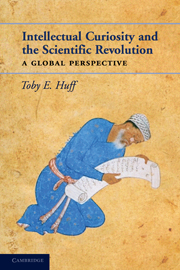Book contents
- Frontmatter
- Contents
- Illustrations
- Preface
- Acknowledgments
- Part I Something New under the Sun
- Part II Patterns of Education
- Part III Science Unbound
- 7 Infectious Curiosity I
- 8 Infectious Curiosity II
- 9 Infectious Curiosity III
- 10 Prelude to the Grand Synthesis
- 11 The Path to the Grand Synthesis
- 12 The Scientific Revolution in Comparative Perspective
- Epilogue Science, Literacy, and Economic Development
- Selected References
- Index
- References
Epilogue - Science, Literacy, and Economic Development
Published online by Cambridge University Press: 05 June 2012
- Frontmatter
- Contents
- Illustrations
- Preface
- Acknowledgments
- Part I Something New under the Sun
- Part II Patterns of Education
- Part III Science Unbound
- 7 Infectious Curiosity I
- 8 Infectious Curiosity II
- 9 Infectious Curiosity III
- 10 Prelude to the Grand Synthesis
- 11 The Path to the Grand Synthesis
- 12 The Scientific Revolution in Comparative Perspective
- Epilogue Science, Literacy, and Economic Development
- Selected References
- Index
- References
Summary
Given the extraordinary achievements seen in the scientific revolution and the huge cultural and technological advantages that those advances conferred on the Western world, it is surprising that so little has been written about it by those concerned with economic development. Major writers who have claimed either the parity or superiority of China to the West economically prior to the eighteenth century have been almost entirely silent about the European scientific revolution, its long history, and its significance.
If we credit Herbert Butterfield's claim set out in the introduction to this study, then it is clear, as the last chapter has shown, that there was a great transformation of thought regarding our understanding of the forces governing the natural world. That mental transformation uniquely unfolded in the West during the last phases of the scientific revolution. This means that Max Weber's question about “what combination of circumstances” were responsible for the great ascendance of the West must include those of the revolutionary new scientific point of view that infused the whole gamut of seventeenth-century natural scientific inquiry, not just astronomy. Put differently, the question of why the West can only be answered by bringing together the great conceptual transformation of the scientific revolution and the effects of the Protestant Reformation that had been noted by Weber. That path of cultural synthesis must consider the facilitating effects of religion along with the emergence of the new print media, the crystallization of a public sphere, and the rising rates of literacy. Indeed, as a sociological factor, the unparalleled rising rates of literacy in Europe were a major contributor to the great ascendance and divergence that set Europe off socially and economically from other parts of the world. Furthermore, the rise of literacy in Europe must be traced back at least to the early sixteenth century, when there was no parallel development in China, Asia broadly, or the Muslim world. At the same time, those developments have to be read against the long developmental background from the late Middle Ages.
- Type
- Chapter
- Information
- Intellectual Curiosity and the Scientific RevolutionA Global Perspective, pp. 301 - 320Publisher: Cambridge University PressPrint publication year: 2010



